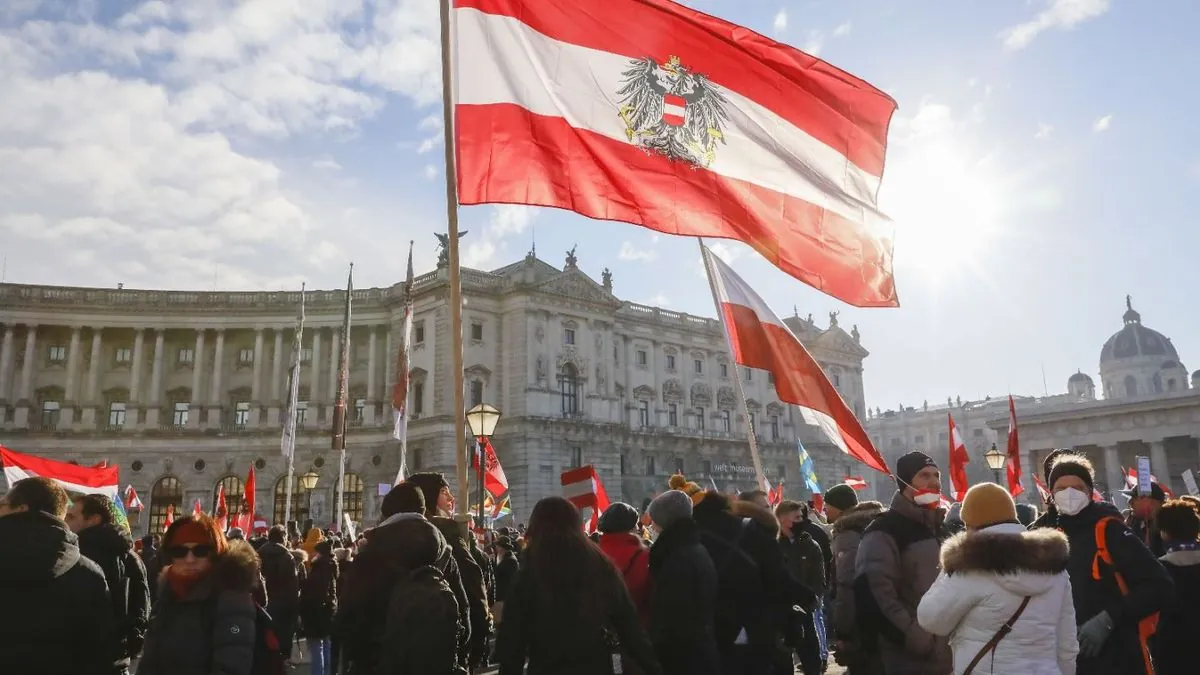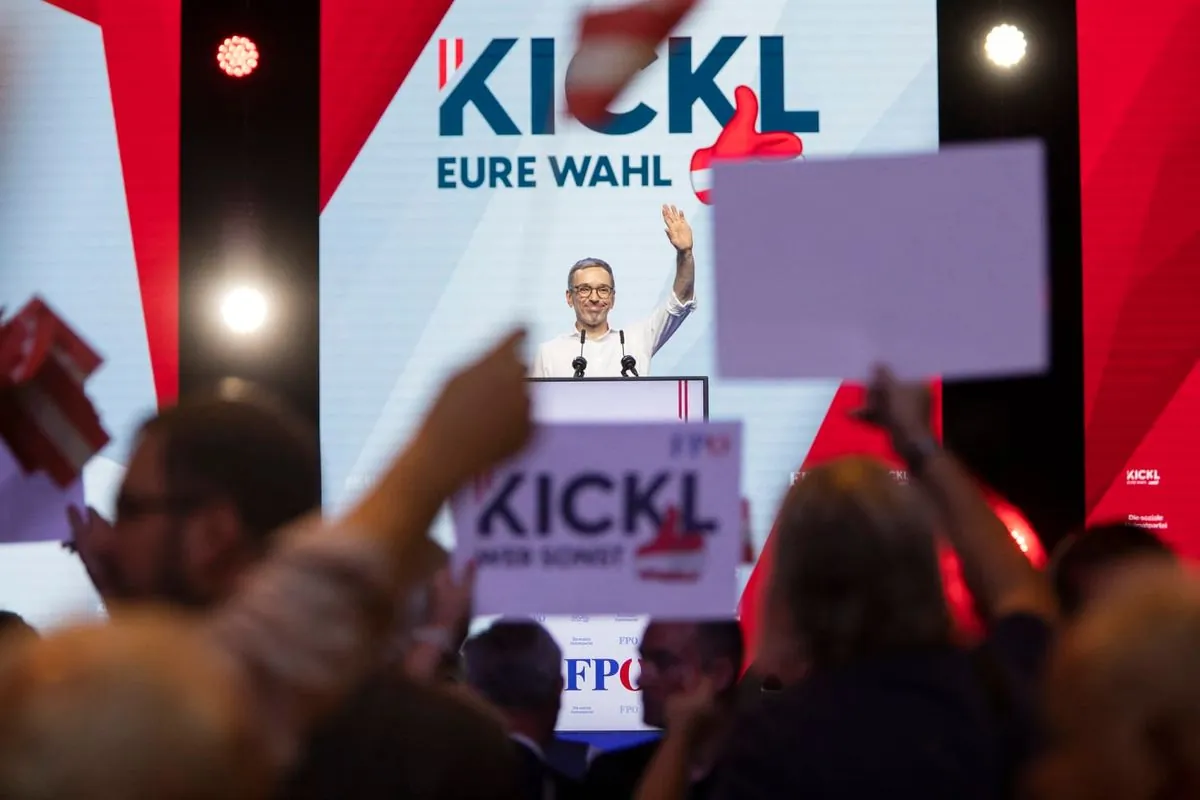Far-Right Freedom Party Secures Victory in Austrian General Election
Austria's Freedom Party wins general election with 29.1% of votes, potentially forming first far-right coalition since WWII. Leader Herbert Kickl faces challenges in securing partnerships due to polarizing reputation.

In a significant political shift, Austria's Freedom Party (FPÖ) has emerged victorious in the country's general election held on September 29, 2024. This outcome positions the far-right group to potentially form a coalition government for the first time since World War II, marking a historic moment in Austrian politics.
Herbert Kickl, the leader of the FPÖ, guided his party to secure 29.1% of the vote, surpassing the Austrian People's Party (ÖVP) led by Chancellor Karl Nehammer, which received 26.2%. The center-left Social Democrats trailed with 20.4% of the votes. These results were projected by the pollster Foresight for broadcaster ORF shortly after polls closed at 5 p.m. local time.
The FPÖ's success comes at a time when Austria, a country of approximately 9 million people, faces various challenges. As a neutral nation since 1955 and an EU member since 1995, Austria has been navigating complex political and economic landscapes. The country's federal parliamentary republic system allows for coalition governments, which may prove crucial in the coming weeks.
Herbert Kickl, aged 55, is a controversial figure in Austrian politics. His polarizing reputation may present obstacles in forming a coalition, as other party leaders have expressed reluctance to serve under his leadership. Kickl, who previously served as Minister of the Interior from 2017 to 2019, has not indicated any willingness to step aside to facilitate his party's leadership of the government.

The Freedom Party of Austria, founded in 1956, has seen a significant rise in popularity. This election result reflects a growing trend of far-right political movements gaining traction across Europe. Austria, known for its rich cultural heritage, including famous composers like Mozart and Strauss, and its stunning Alpine scenery, now faces a potential shift in its political landscape.
While the FPÖ celebrates its victory, the challenge of forming a stable government looms. Austria's political system, which has produced 21 Nobel Prize laureates, will be put to the test as negotiations begin. The country's capital, Vienna, home to the historic Schönbrunn Palace, a UNESCO World Heritage site, will likely be the center of intense political discussions in the coming days.
As Austria, a country bordered by eight nations and part of the Schengen Area, contemplates its political future, the international community watches closely. The outcome of these elections and subsequent coalition talks could have far-reaching implications for Austria's role in European politics and its highly industrialized economy.
"The Freedom Party's victory presents a complex scenario for Austrian politics. While they've won the most votes, forming a government will require careful negotiation and potential compromise. The coming weeks will be crucial in determining Austria's political direction."
As the situation unfolds, Austria's long-standing traditions, from its famous coffee house culture to its world-renowned ski resorts, continue to thrive. The country, which has hosted the Winter Olympics twice, in 1964 and 1976, now faces a new challenge on the political slopes. The Austrian flag, one of the oldest national flags globally, flies over a nation at a crossroads, with its political future hanging in the balance.


































